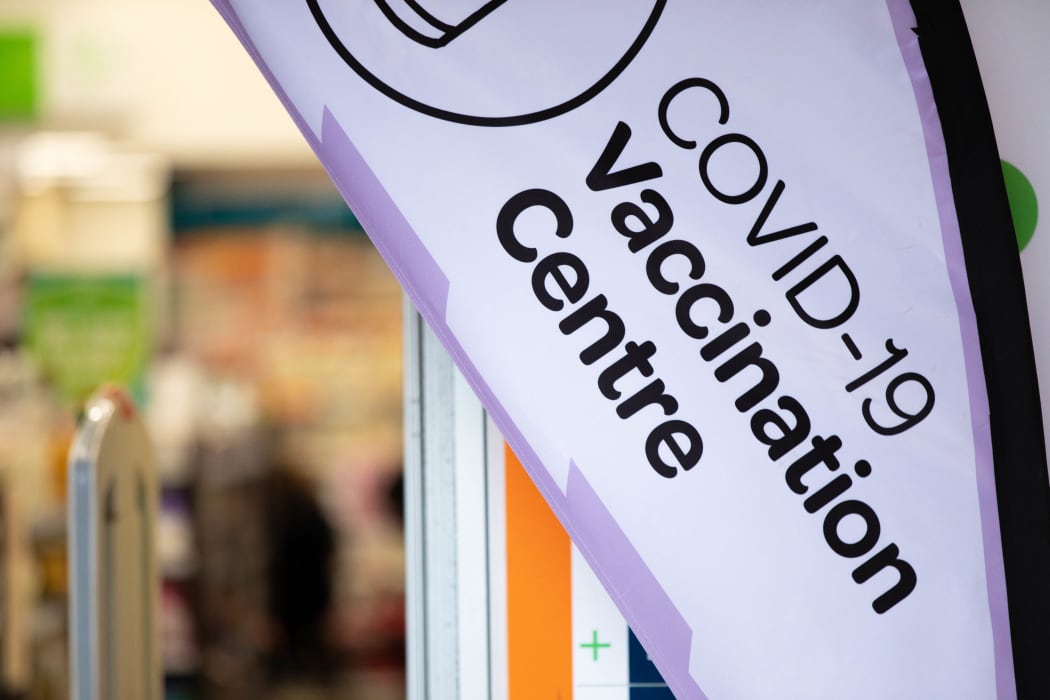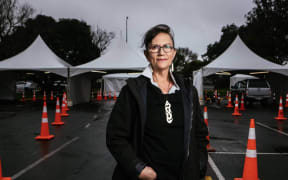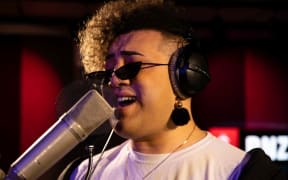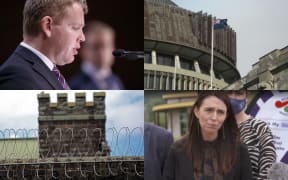A military-style crisis response will be set up with millions of dollars of new funding for the Māori Covid-19 vaccination effort around Whanganui.

Vaccination Centre Sign Photo: RNZ / Angus Dreaver
The government on Monday announced $23.5 million of funding direct from ministers for iwi and Māori health providers, after many DHBs were found wanting.
It includes $2.8m for iwi in southern Taranaki, Rangitīkei and Ruapehu districts, and another $1.3m for iwi across Taranaki.
Māori Crown Relations Minister Kelvin Davis said local solutions were the way to reach Māori.
"There are an army of volunteers, iwi and Māori organisations already working hard on this mahi and with the funding provided their efforts will be supercharged."
Ngā Rauru straddles the border of Taranaki and Whanganui, and Te Kāhui o Rauru kaiwhakahaere Victor Goldsmith said former military personnel would coordinate the response for over a dozen Whanganui iwi.
"We're calling it crisis management because it is like a wartime battle. You need to collect and share data and intelligence, which leads to good use of resources. So we've got people who are ex-military that are working for us."
Goldsmith said data from Whanganui DHB will be part of a GIS (Geographic Information System) database to capture more information in the field, allowing better decision-making.
"With our crisis management tool working with ex-military guys I think that's going to be a gamechanger for us."
The Whanganui money is also earmarked for more mobile vaccination events, and efforts to reduce misinformation.
Goldsmith said the team urgently needed to buy campervans and trailers, and to hire nurses, vaccinators, administrators and planners.
He expected teams out on the streets within a fortnight.
"We need to get into communities and educate our people. It's not just a matter of going in and jabbing them with the vaccine, we need to… send the right people into the community so our people know who they are."
Goldsmith said the data collection also offered the chance to mend underfunding of Māori health by correcting incomplete DHB records.
"We need to go back to the Crown and say: we told you your model was wrong, and now we've captured the data you need to change your model - there weren't three people in that household, there were ten."
The Taranaki funding will pay for more trained vaccinators, nurses and kaiārahi in a region-wide effort coordinated by Te Aranga, the Covid response arm of the eight iwi of Taranaki.
South Taranaki iwi Ngāti Ruanui, which already has 12 newly-trained vaccinators working from campervans, was invited to apply for its "vax 'n' yacks" programme but was not funded in this first round.
More spending is due to be announced later this week and Te Pāti Māori co-leader Debbie Ngarewa-Packer of Ngāti Ruanui is optimistic of success.
She said different areas had a variety of responses already up and running.
"It's really important that the government doesn't wrap everybody into a one-stop shop approach - they need to hear what each group mobilising in their own takiwā (area) are doing, and support that."
Ngarewa-Packer said it was a shame the funding had come so late, but Ngāti Ruanui would look to scale up its vaccination effort.
She also said the experience could spark long-term change.
"It's a model that we can use for other immunisations. It's a solid model and it's probably going to be the new norm for a lot of other things, not just Covid but our other health needs."
The money is the first spend by the Ministerial Oversight Group of Kelvin Davis, Willie Jackson, and Peeni Henare, who have $60m to spend boosting vaccinations for Māori, and another $60m for Māori communities to get ready for the spread of the Delta variant of Covid-19.
Visiting Taranaki this week, Associate Health Minister Peeni Henare said the funding was coming direct from ministers partly to shake up bureaucracy in some DHBs.
He said some applicants had proposed teaming up with DHBs.
"Health providers acknowledge they don't have the infrastructure or the workforce - because they're tired, they've been vaccinating since March - and in order to get the volume they need more workforce and that can only come from the DHBs."
Henare said not all proposals got the tick, with $7m worth of applications for music concerts to rally vaccination support.
"Now that's fine, I'm up for a concert like anyone else, and yes it's a good way to bring people out, but we need to see that this money is directly targeting those we need to target and that it'll lift vaccination rates."
Would-be concert promoters were being asked to team up with Māori providers and DHBs to make sure events drove up vaccinations.




